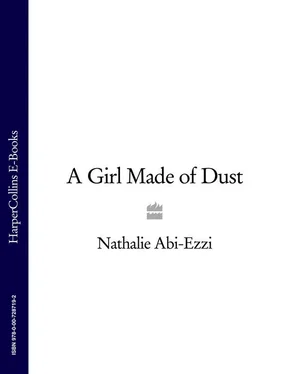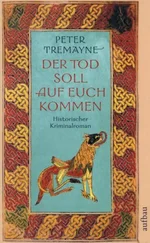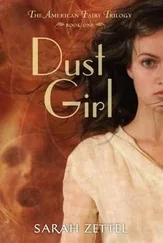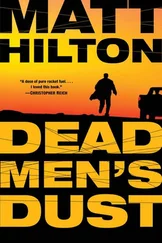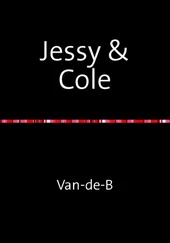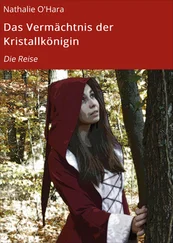NATHALIE ABI-EZZI
A Girl Made of Dust

For Jeddo
Chapter One
Chapter Two
Chapter Three
Chapter Four
Chapter Five
Chapter Six
Chapter Seven
Chapter Eight
Chapter Nine
Chapter Ten
Chapter Eleven
Chapter Twelve
Chapter Thirteen
Chapter Fourteen
Chapter Fifteen
Chapter Sixteen
Chapter Seventeen
Chapter Eighteen
Chapter Nineteen
Chapter Twenty
Chapter Twenty-one
Chapter Twenty-two
Chapter Twenty-three
Acknowledgements
About the Author
Copyright
About the Publisher
‘It's thanks to the 'adra that you didn't get killed today.’ Teta crossed herself, and her lips moved in a silent prayer as we sat on her bed folding clothes that were stiff and bent in strange shapes from the sun.
The room seemed darker and heavier than usual, with its old furniture, and the tired curtains that wanted to lie down if only the hooks would let them. Through the window, the tops of the pine trees dropped into the valley, where white stone buildings stuck out tall from between them like giant fingers; and further down still to Beirut, which lay stretched out beside the sea. The hot sky had bleached itself white and cicadas hummed back and forth, back and forth, as if they were sawing the trees. Teta had said once that each time they stopped a person had died, but they didn't stop often: their throbbing started early in the morning when the light came over the mountains and didn't stop till it went away again.
‘I fell all the way down from the ledge. The earth crumbled and it was so far, higher than the ceiling.’
‘What? Are you a half-wit, Ruba, to be playing in the forest next to a steep fall like that? Are you, girl?’ She touched my cheek. ‘In any case she 's the one who saved you.’
‘The Virgin?’ I gazed at the little yellow-haired plastic woman in a blue dress standing on the dressing-table. She was really only a bottle filled with holy water that you could see if you unscrewed her crown and I didn't see how she could have saved me that morning.
Teta nodded. ‘You could have fallen as far as hell itself and you wouldn't have been killed. The Blessed Virgin wouldn't have let you die.’
‘Is that her job? Is that what she does?’
‘Does?’ Teta gave me a look. ‘She's not a belly-dancer, child, she's the Mother of Christ.’
I didn't really want to hear about the Virgin Mary unless Teta put her into a story and made her do something exciting like swim out to sea, or play hide-and-seek with God, or dig a tunnel all the way to Beirut and live in it.
The huge pair of grey-white pants I was trying to fold didn't want to be made small. They were grandmother pants; no one but grandmothers ever wore that sort.
‘But she couldn't have saved me because she wasn't even there.’
Teta smiled. ‘She was there.’
Maybe Teta was right. Perhaps the Virgin had wanted me to fall; she had made me fall so I could find the glass eye.
‘If only she'd help your father as well,’ Teta murmured.
I looked up from the pants, but she didn't say anything more, just carried on untangling, shaking and folding. A thin green blouse slid out from the pile, was laid flat and smoothed: Teta's hands were slow and heavy, and things obeyed them.
‘Does she really look like that?’ I pointed at the plastic bottle full of holy water. ‘Or like Teta Fadia? Teta Fadia looks like an angel.’ A photograph of Teta's mother, wedged into the frame of the dressing-table mirror, showed a woman older than anyone I'd ever seen bent over a walking-stick. Her white hair was parted in the middle and tied back, and she wore a pair of horn-rimmed glasses; but behind them was a kind, soft face.
‘She was an angel,’ said Teta. ‘Haven't I told you how it's because of her that I can read? “Why should my sons go to the school and not my daughter?” she used to say. “Aren't I a daughter?” And so my brothers and I took turns to tend the goats and go to school.’
Teta didn't look like her mother. There was still a lot of black in her hair, she was strong with large hips, and her face was neither soft nor beautiful, just round and wrinkled and wonderful.
As I watched her smiling reflection in the mirror folding and stacking, I fingered the glass eye in my pocket. It was hard and dense, and I hadn't told anybody about it.
‘Naji will have come back. I'm going to see.’ When early afternoon had changed into late afternoon and the shops were reopening, Mami had gone with Naji to buy food and house-things. Only Papi was at home.
Teta's heavy hands shook out a towel. ‘Yes. Go and find your brother.’
My shoes squeaked down the tiled floor of the corridor. Light came in through the doors leading onto the large balcony, but the middle of the flat was as quiet and dim as if it was under water. The bulb above the sink in the corridor was switched on, and in the shadows, the sewing-machine with ‘Singer’ on it was crouched like a black bear. I put up my nose as I passed the bunch of dried lavender that hung from a nail in the wall: it smelt of sleep and open spaces.
Above the wooden double doors, a huge embroidered picture of Christ's head bled and shone out great beams of light, the eyes staring up at the top of the frame so that the whites showed. In the dining room there was another picture of him, only in that one he was eating with a lot of other men. Teta said it was his last supper, but wouldn't say what the food was or where the women who'd prepared it had gone.
The door shivered shut and I headed up the stairs into the white sunshine.
The August sun shone like Jesus, and across the road, large black flies worried the thin dogs and cats that stepped among the rubbish or leapt onto the garbage drums. At midday, sweating shopkeepers pulled down their shutters, went home to have lunch and rest, and the afternoon slump set in. People and plants wilted together; only the pine trees remained upright like soldiers in the heat. Dust rose and settled whenever a car chugged slowly uphill, cats and young women yawned, and the town waited for the shadows to grow long.
I didn't want to be alone in the house with Papi, so I stayed on the veranda that ran three-quarters of the way round the building. Sliding down to the floor, I sat with my back to the wall.
Mami always said that time passed quickly, and maybe it did in other places – in Beirut or on the beach or in the Roman temples at Baalbek that were in our history books at school, or at the top of the snowiest mountain – but here in Ein Douwra, it went slowly. The Rose Man came down the stairs onto the far end of the veranda, smiled at his roses as he walked past them, and carried on up the hill, easing himself from foot to foot, lifting and settling his stick, stopping at every fifth or sixth step to rest and look around. He was slow, and time moved even slower than he did. It had taken for ever to get to 1981, and would take for ever again to reach my eighth birthday.
Finally there was a crunch of gravel and Mami appeared, sweating and red-faced, weighed down with bags of shopping. Naji came behind, carrying two more and stamping his feet in time to a song he was chanting. He followed Mami into the house, and a minute later came back out again. ‘What happened to you?’ he asked, looking at my cuts.
I turned first one way and then the other to show Naji the best ones.
Читать дальше
